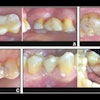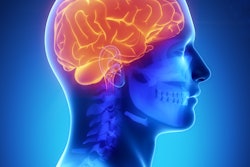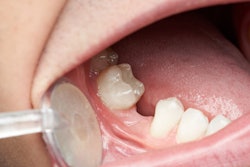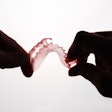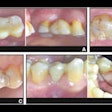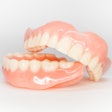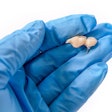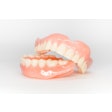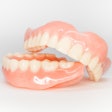
Tooth loss is a risk factor for cognitive impairment and dementia, according to a meta-analysis published on July 8 in the Journal of Post-Acute and Long-Term Care Medicine. What's worse, the risk of cognitive decline increases with each lost tooth.
The authors investigated the link between cognitive decline and tooth loss using 14 individual studies with 34,074 adults and 4,689 cases of diminished cognitive function. While tooth loss was linked to cognitive decline, the use of dentures may offer some protection, they found.
"Given the staggering number of people diagnosed with Alzheimer's disease and dementia each year, and the opportunity to improve oral health across the lifespan, it's important to gain a deeper understanding of the connection between poor oral health and cognitive decline," stated senior author Bei Wu, PhD, dean's professor in global health at New York University Rory Meyers College of Nursing, in a press release.
Prior research has shown a link between tooth loss and diminished cognitive function. Older individuals often have worse oral health than younger people, and cognitive impairment may only exacerbate this issue, Wu and colleagues noted.
The authors sought to better understand this issue with the new analysis by compiling the findings of existing studies on tooth loss and cognitive function. They searched six scientific databases for studies published through March 1, 2020, and included studies with at least three tooth-loss categories.
Older adults with more teeth lost than average had a 1.48 times greater risk of developing cognitive impairment and 1.28 times greater risk of being diagnosed with dementia. This remained true even after controlling for other factors.
Researchers also observed a "dose response" between tooth loss and cognitive impairment, meaning a greater number of missing teeth was associated with a higher risk of cognitive decline. Each additional missing tooth carried a 1.4% increased relative risk of cognitive impairment and a 1.1% increased relative risk of being diagnosed with dementia.
"This 'dose-response' relationship between the number of missing teeth and risk of diminished cognitive function substantially strengthens the evidence linking tooth loss to cognitive impairment, and provides some evidence that tooth loss may predict cognitive decline," stated lead author Xiang Qi, a doctoral candidate from NYU Meyers.
Dentures may have some protective ability against cognitive decline, the authors noted. Adults with missing teeth but no dentures had a 23.8% chance of cognitive impairment, while those with dentures had a 16.9% chance of experiencing cognitive decline.
"Timely prosthodontic treatment with dentures may reduce the progression of cognitive decline related to tooth loss," the authors wrote.
The analysis did have potential drawbacks, however, including a risk of bias. Furthermore, the studies analyzed did not all control for important factors such as participant age, and studies used different methodology to assess cognitive function.
Despite the shortcomings, the analysis showcased the role of good oral health on broader health implications, the authors noted. It also indicated the benefits of timely prosthodontic treatment.
"Our findings underscore the importance of maintaining good oral health and its role in helping to preserve cognitive function," Wu stated.


